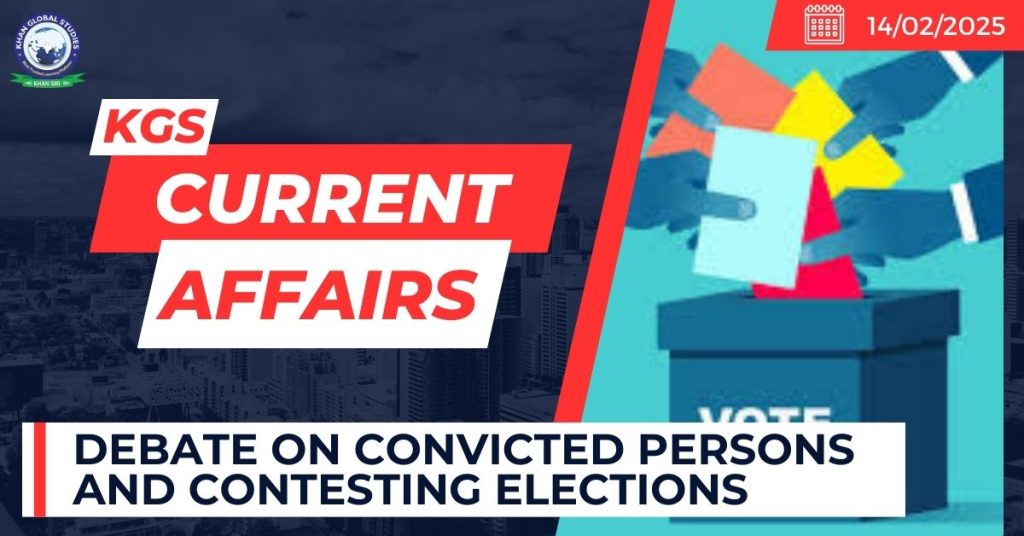Context
- Recently, the Supreme Court is hearing petitions submitted by Ashwin Upadhyay and others, requesting a lifetime ban on convicted individuals from contesting elections.
- The petition arguing that even they are ineligible for government jobs, they should not be allowed to become lawmakers after serving their sentence.
- In a 2020 affidavit, the Central government stated that MPs and MLAs are not subject to ‘service conditions’ like government servants, and therefore, the current six-year disqualification period is sufficient.
Legal Framework Governing Convicted Persons in Elections
- Section 8(3) of the Representation of the People Act, 1951, disqualifies individuals convicted of a criminal offence and sentenced to at least two years of imprisonment.
- Such a person is disqualified from contesting elections for a further period of six years from the date of release.
- Section 8(1): It mandates disqualification for individuals convicted of serious crimes like rape, untouchability under the PCR Act, unlawful association under UAPA, or corruption, regardless of sentence length, and for six years after release.
- Section 11 of the RP Act, 1951: It provides that the Election Commission (EC) may remove any disqualification or reduce the period of disqualification of a convicted person.
Landmark Supreme court judgements
- Association for Democratic Reforms (ADR) case (2002): It mandated the disclosure of criminal records of all candidates contesting elections.
- CEC vs Jan Chaukidar case (2013): Section 62(5) of RPA,1951, prohibits jailed individuals from voting, and the court ruled that undertrial prisoners are not considered ‘electors’ and thus ineligible to contest elections.
- However, the Parliament amended the act in 2013 to overturn this judgment allowing under trial prisoners to contest elections.
- Lily Thomas (2013) Case: The court struck down section 8(4) of the RP Act, 1951, that allowed a sitting legislator to continue as a member even after being convicted.
- S.C argued that parliament has no power to provide for a special dispensation for convicted legislators.
Arguments Against Allowing Convicted Individuals to Contest Elections
- Allowing convicted criminals to contest elections undermines the integrity of democracy.
- Allowing convicted individuals to run for office could erode public trust in both the electoral process and elected representatives.
- Individuals convicted of violent crimes may be more likely to engage in corruption and other immoral activities.
Arguments in Support of Allowing Convicted Individuals to Contest Elections
- In the Kuldip Nayar case S.C upheld that the right to vote and the right to be elected are ‘statutory rights’
- The principle of ‘presumed innocent until proven guilty’ is fundamental to the democracy.
- Banning convicted individuals could be viewed as an overstep by the state, restricting citizens’ freedom to select their leaders.
Way Ahead
- A 2024 ADR report reveals that 251 (46%) of the 543 elected MPs have criminal cases, with 171 (31%) facing serious charges like rape, murder, attempt to murder, and kidnapping.
- The Law Commission in 1999 and 2014, and the EC on various occasions have highlighted the need to curb the criminalisation of politics.
- They recommend barring individuals charged with offenses punishable by over five years from contesting elections.
The decision should balance safeguarding electoral rights with promoting ethical governance.

